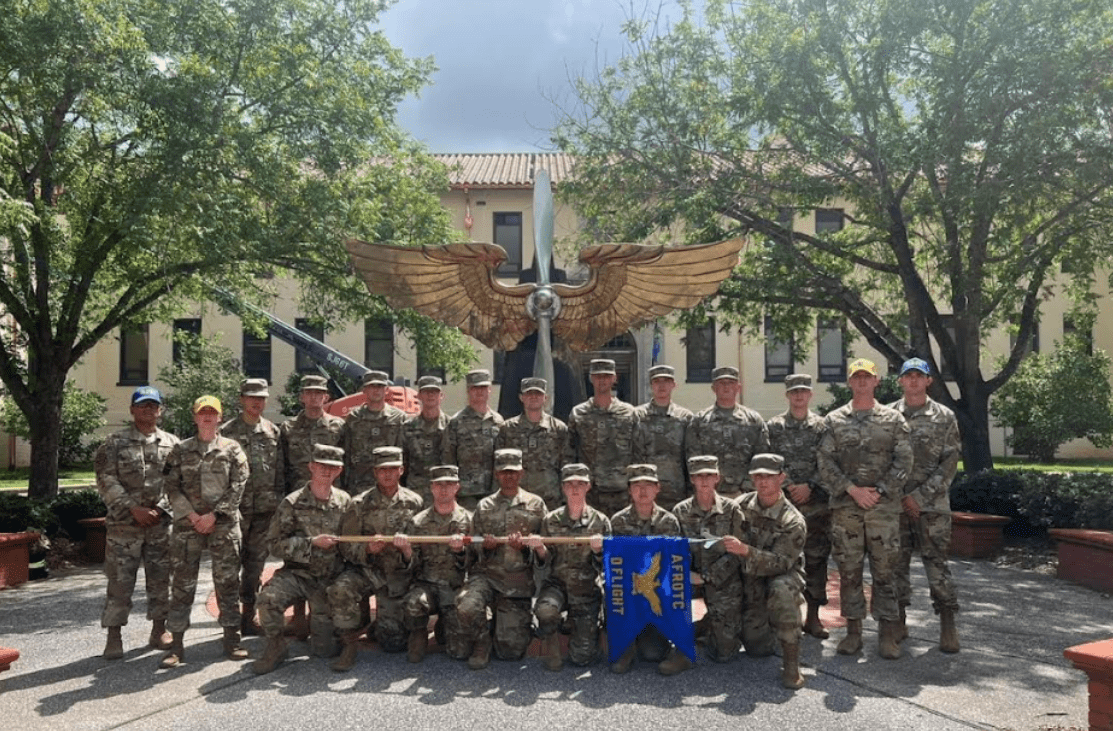By: Capt Victor Salum, SSgt Dat Trinh
One might think that being part of the Aerospace Studies Department at San José State University is limited to having an impact on local Bay Area cadets who seek a future as officers in the Department of the Air Force (DAF). Though that statement is true, we also have an impact on cadets across the nation.
Each summer we are called upon to train and evaluate the future leaders of the DAF during what, in AFROTC (Air Force Reserve Officers’ Training Corp), we call Field Training. This year’s Field Training took place in Maxwell Air Force Base, Alabama. Those that have been in the southern part of the United States during the summertime (90+ degree weather, 100% humidity, mosquitos & large sized insects) know that it’s probably not the ideal place to spend a summer vacation.
Field Training is a rigorous boot-camp-style program of physical training, weapons training, survival training, and deployment skills. Aerospace Studies Department faculty members, Captain Victor Salum and Staff Sergeant (SSgt) Dat Trinh, had the opportunity this past summer to train and evaluate the leadership potential of cadets who attended universities from all over the country – UCLA, Purdue, Boston University, University of Miami, Auburn, Clemson, Massachusetts Institute of Technology and Harvard to name a few. Each day was a challenge with early mornings to prep for the day, marching in the heat and sometimes the pouring rain, more planning after your work shift to prep for the next day, and continuous evaluation of cadets. Field Training allows cadets to hone their followership, teamwork, and most importantly, leadership skills. The program is designed to evaluate military leadership and discipline and determine potential for entry into the AFROTC upper-class, also known as the Professional Officer Course. One of the toughest parts of Field Training is having to tell a cadet that they do not meet the standards of the program and having to send them home after all the time that they have devoted to the AFROTC program. But that is the purpose of Field Training, to seek those that have the potential to become future Air or Space Force officers and dismiss those that do not meet the standards. Successful completion of Field Training is mandatory for completing the AFROTC program and obtaining a commission in the Air Force or Space Force.
But as Colonel Corey Ramsby, AFROTC Commander, mentioned to cadets who graduated Field Training this past summer, “You’re only half-way to the starting point.” That starting point is what cadets work so hard to be, a commissioned officer in the US Air or Space Force.
